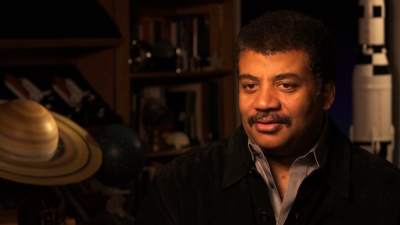Creationism Is No Problem, Just Keep It Out the Classroom, Says Prominent Astrophysicist

Renowned astrophysicist Neil deGrasse Tyson has said this week that while he had "nothing specifically against a creation museum," Creationism should be kept "out of the science classroom."
"We live in a free country; people can say whatever they want about whatever," he said, adding a warning to his StarTalk radio show audience that they should not "confuse it with actual science."
Tyson was answering a letter from a listener who had visited the Kentucky-based Creation Museum and was curious how the scientist would answer one of the institution's claims.
"The recorded narration in their planetarium said that contemporary astrophysics predicted that certain stars were older than the known age of the universe and cited this problem as evidence against science and for Young Earth creationism," the listener wrote.
Tyson explained that the Creation Museum's argument was one made "back in the 90's... before the Hubble Space Telescope settled all these questions."
"We had measurements of the oldest stars and they were coming in at 18 billion years-old and measurements of the age of the universe were coming in about 15 billion years old. That was an unsolved problem in astrophysics....You can't be older than your mother!" he said.
According to Tyson, although the media had made a fuss about a three billion year-gap between the age of the stars and the age of the universe, scientists had been unconcerned.
"I was happy that they were in the same ballpark…cosmically speaking that difference (3 billion years) is small. It's not one that's a thousand times older than the other, [a sign that] somebody is not doing something right. So a few billion years on fifteen billion years was a problem to be solved but it made much sexier headlines to talk about [this contradiction]," he said.
Part of the reason for the lack of scientific anxiety, Tyson said, was that the margin of error of the calculated numbers actually gave the estimates an overlap.
The situation ultimately resolved itself, Tyson said, with data received from the Hubble Space telescope.
"Right now, the universe is about 14 billion years, the ages of stars all match up and we have better measurements of what goes on inside of stars. That all got resolved," he said.
Ken Ham's Creation Museum believes that the universe was created 6,000 years ago. Ham's organization, Answers in Genesis, estimates this number "by taking the first five days of creation (from earth's creation to Adam), then following the genealogies from Adam to Abraham in Genesis 5 and 11, then adding in the time from Abraham to today."




















